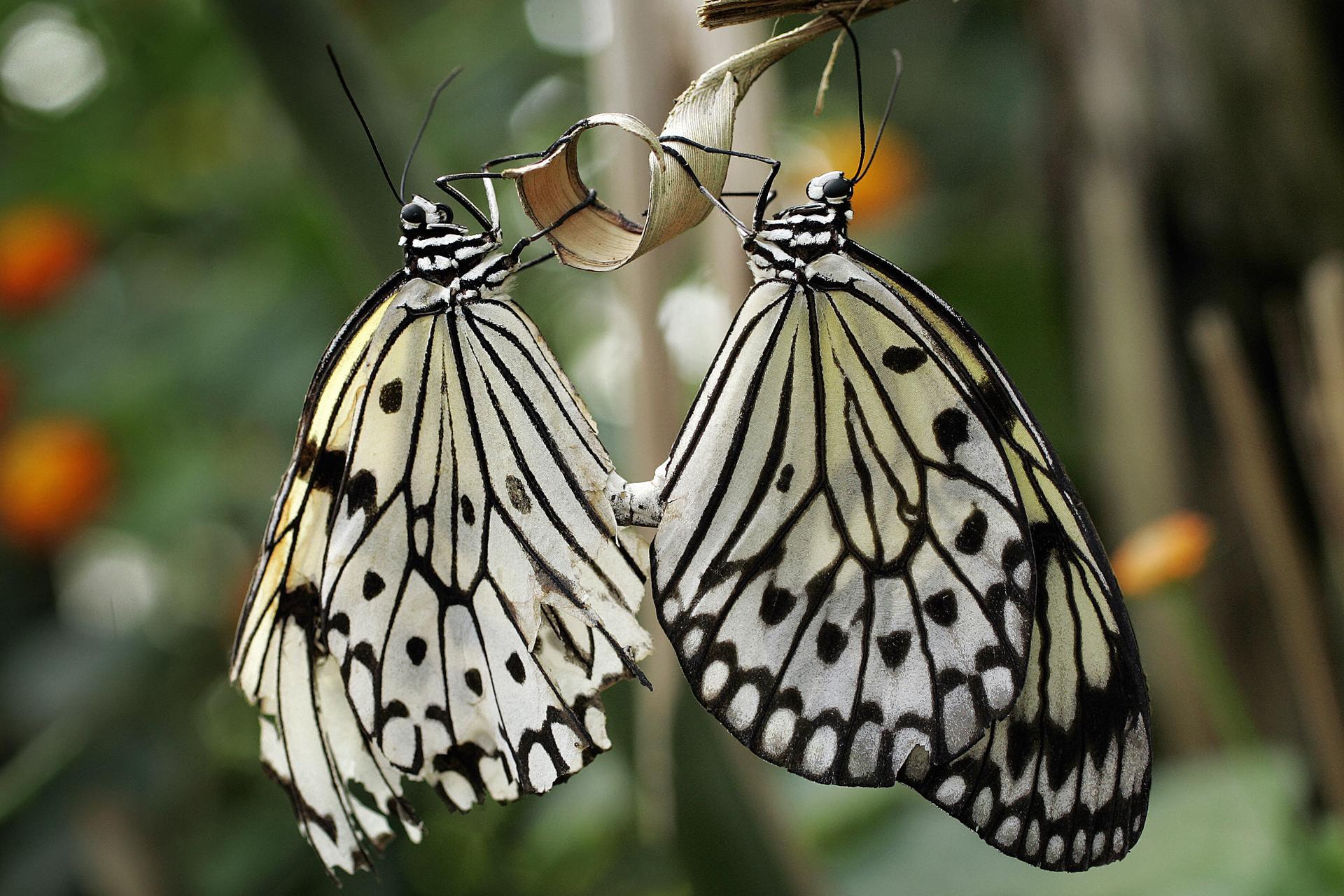World Bank urging countries to protect ‘natural capital’
Two White Tree Nymph butterflies hold a branch 03 April 2007 at the Papiliorama, Swiss tropical gardens, in Kerzers. The White Tree Nymph prefers coastal mangrove swamps and are common to Thailand.
The World Bank is calling on countries to take stock in their 'natural capital' and make plans to protect it.
According to The Guardian, on Wednesday the World Bank published a report on green growth titled, Inclusive Green Growth: The Pathway to Sustainable Development. The report outlines the importance of placing a monetary value on natural ecosystems as a key step on the road to "green" economic growth.
Rachel Kyte, vice president for sustainable development at the bank, said in a statement, "At current rates, we are in danger of undermining the basis on which growth has been achieved in the last decades. We do not believe that current growth patterns are sustainable." Kyte further explained the current growth is unsustainable because of the amount of environmental degradation involved.
According to the document, "Over the past 20 years economic growth has lifted more than 660 million people out of poverty and has raised the income levels of millions more, but growth has too often come at the expense of the environment. A variety of market, policy, and institutional failures mean that the earth’s natural capital tends to be used in ways that are economically inefficient and wasteful, without sufficient reckoning of the true social costs of resource depletion and without adequate reinvestment in other forms of wealth."
More from GlobalPost: Why green energy might not solve the power crunch
Kyte cited Thailand as a specific country using their natural capital for growth. According to The Guardian, Kyte said, "Thailand has placed greater economic importance on its mangrove swamps. "By chopping down mangrove for wood gives a return of less than $1,000 per hectare; removing the mangroves to make room for a shrimp farm might generate nearly $10,000 per hectare; but if the mangrove swamps were retained and their importance in providing a barrier against floods was taken into account, they could be valued at more than $16,000 per hectare."
AllAfrica.com reported the Korean government has pledged $40 million to strengthen and expand the Bank Group's global green growth portfolio.
Jaewan Bahk, Minister of Strategy and Finance told AllAfrica.com, "We are delighted to partner with the World Bank Group and to share Korea's experiences and expertise since making green growth our national strategy in 2008. The transition to green growth paths is not easy. Sharing know how and capacity is imperative if developing countries are to leapfrog inefficient and outdated growth and production patterns."
According to Reuters, the movement is now gaining a wide range of new backers, including insurers, who they say, "are trying to figure out how to respond to extreme weather, which is being exacerbated by climate change, and the disasters and insurance payouts that come with it."
Reuters also noted that not everyone is on board with natural capital accounting. Some are concerned that highlighting their lack of natural assets could make them less attractive to investors.
More from GlobalPost: Should the EU give up on green energy?
Every day, reporters and producers at The World are hard at work bringing you human-centered news from across the globe. But we can’t do it without you. We need your support to ensure we can continue this work for another year.
Make a gift today, and you’ll help us unlock a matching gift of $67,000!
